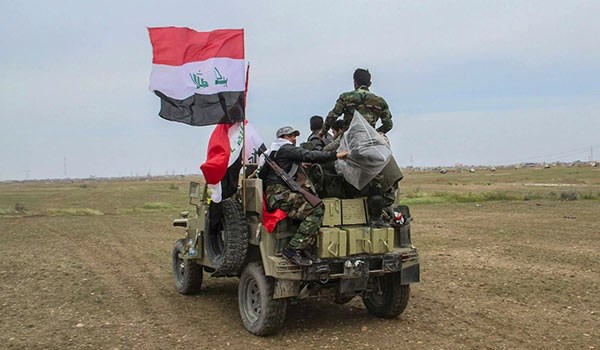
RNA - Iraq’s Joint Operations Command Spokesman Brigadier General Yahya Rasool stressed that "Daesh [ISIL] controlled 40 percent of Iraqi land" in 2014, but “as of March 31 (2017), they only held 6.8 percent of Iraqi territory."
ISIL turned its attention back to Iraq in 2014, sending a force to Anbar province and taking over Fallujah and the provincial capital, Ramadi. Then, ISIL launched attacks in several Iraqi cities and took control of Mosul and Tikrit.
Over the past two years, ISIL has been losing ground steadily, and thus increased its acts of violence in revenge for the blows it has been suffering at the hand of Iraqi forces, particularly in the second largest city in the Arab country, Mosul.
Iraqi Prime Minister Haider Abadi announced in October 2016, the start of a military operation to recapture Mosul, the second largest city in Iraq which fell to the ISIL since 2014.
The Iraqi defense ministry announced earlier in January that the ISIL terrorist group has lost over 50 percent of its militants in the city of Mosul in Nineveh province as Iraqi troops have managed to recapture the Eastern part of the de facto Capital of the ISIL.
"The intelligence obtained by us indicates that there have been over 6,000 ISIL terrorists in Mosul and around 3,400 of them have been killed in battles with Iraq's joint military forces in the major city of Nineveh province," Iraqi Defense Ministry Spokesman Colonel Laith al-Naimi said.
He added that over 250 bomb-laden vehicles and the entire bomb-making workshops of the terrorists have been destroyed in Mosul which means that the ISIL has been paralyzed by the Iraqi forces.
The Iraqi Army started a new phase of its military operation in Nineveh province late February to drive the ISIL terrorists out of their bastion in the Western part of the city of Mosul.
With half the city under the control of Baghdad forces, the Iraqi Armed Forces will likely face heavier resistance in the Western part of Mosul, as the ISIL attempts to hold onto their final positions.
Local sources had disclosed that the ISIL is preventing civilians in the Western part of the city of Mosul from leaving the region in a move to use them as human shields as the terrorist group's positions are under intensifying attacks by various troops.
Commanders expect the battle in Western Mosul to be more difficult, in part because tanks and armoured vehicles cannot pass through the narrow alleyways that crisscross ancient districts of the city.
The full liberation of Mosul, ISIL's de facto capital and last major city stronghold of militants in the Arab country, would likely spell the end for the terror outfit’s so-called caliphate.
847/940